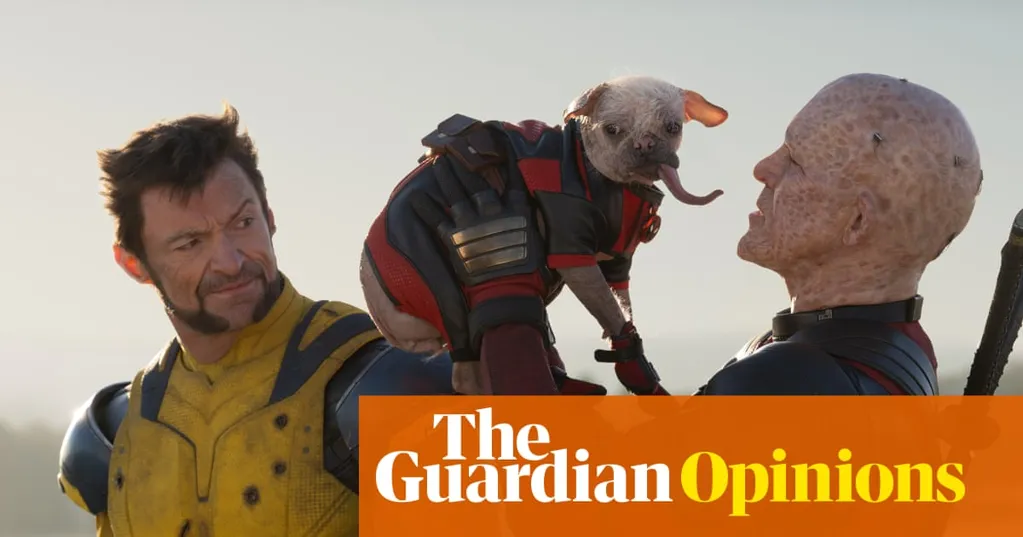An X-Men reboot is in the works, but how will the studio integrate the alternate timelines? Will it use the Blip again? Some chaos magic from Scarlet Witch? The Celestials from Eternals even? Let's consider the options.
The news this week that the X-Men are finally heading to the Marvel Cinematic Universe has been predicted ever since Disney's $71bn buyout of 20th Century Fox in 2019, when every comic book mutant back to Apocalypse suddenly became available to Kevin Feige and Marvel. But it remains to be seen when and how Jean Grey, Cyclops et al will finally make landfall on Earth-616, especially since nobody has yet explained how Marvel plans to smuggle them into a timeline that has spent the best part of two decades blissfully ignoring their existence.
In an interview with Empire magazine, Thunderbolts director, Jake Schreier, describes the chance to oversee the X-Men reboot - which is unlikely to land before 2028 - as "an incredible opportunity with super interesting characters and internal conflict", adding: "These characters are wrestling with their identity and place in the world - that's inherently interesting and complex material." Which, of course, is the usual guff film-makers blurt out when trying to reassure fans that they're taking the project seriously, but tells us zilch about how it is all going to pan out.
The big problem for anyone trying to suddenly introduce mutants into the MCU is that screenwriters can't magic up a 20-year-old Cyclops without explaining how he somehow missed the Battle of New York, the Ultron incident and Thanos's big midlife crisis. Industry reports suggest that Marvel wants to introduce a new generation of younger X-Men, which means that unless something really interesting (and possibly narratively dysfunctional) is going on, they would have been born around the time Tony Stark was still cheerfully selling weapons to failed states, a couple of years before 2008's Iron Man kicked off the whole MCU circus. So where have all these X-babies been all this time?
Of course Marvel can and will introduce alternate-universe versions of Professor X, Magneto, Jean Grey and so forth, as is the plan in next year's Avengers: Doomsday, with old favourites from the Fox years such as Patrick Stewart and Ian McKellen turning up for one last hurrah. And we've already seen Deadpool and Wolverine in the main reality. But that doesn't allow Marvel to present the X-Men as they have always existed in the comics: as a huge new wave of mutants who suddenly begin to proliferate at a monumental moment in history, reshaping the world around them.
So what are Marvel's options? The most obvious universal reset button, if it really does want to persuade us the X-Men have just appeared from nowhere, is to use the Blip - which already functions as this creaking old franchise's narrative duct tape and may as well be wheeled out again in the studio's hour of need. You will probably recall that after Thanos finger-snapped half the galaxy out of existence in 2018's Infinity War, things got very weird - especially when everyone inconveniently popped back in 2019's Endgame, thanks to the time-bending efforts of Stark et al. What if, a few years later, it turns out that quite a few of those cosmic returnees were actually resurrected with added extra laser eyes and angel wings? Would anyone really bat an eyelid?
Then there's the multiverse option. After 2027's Avengers: Secret Wars, Marvel simply grafts on a universe where mutants have always been around. It's been done before in the comics: the 2015 Secret Wars event cheerfully stitched together Earth-616 with the Ultimate universe, giving us a brand-new continuity. It's the kind of narrative sleight of hand only Marvel could get away with.
And if all else fails, there's always Elizabeth Olsen's Scarlet Witch - except she's technically dead, having brought down an ancient sorcerer's temple on her own head in Multiverse of Madness. But death in the MCU has all the permanence of a bank holiday parking restriction, so it’s not inconceivable that Marvel drags her back to flick the mutant switch. Wanda’s chaos magic could be rebranded as a patch update - the kind that suddenly downloads the “Mutant Expansion Pack” whether you wanted it or not.
There are other options. Perhaps mutants have been here all along, and Professor X has been quietly gaslighting humanity for decades. Or maybe the Celestials, those giant space gods from Eternals who are often credited with priming humanity for mutation in the comics, have been at it again. The Blip flips the switch, and suddenly we’re knee-deep in superpowered teens, with the only slight snag being that Marvel would have to admit Chloé Zhao’s misfiring nonentity of a film actually happened.
Either way, the X-Men are finally on their way, and the MCU is likely to be forever changed. Unless Feige and his team have something up their sleeves we haven't imagined yet, their arrival is likely to be clunky. Then again, if the past two decades have taught us anything, it's that subtlety was never Marvel's superpower in the first place.
